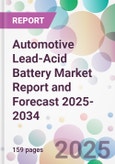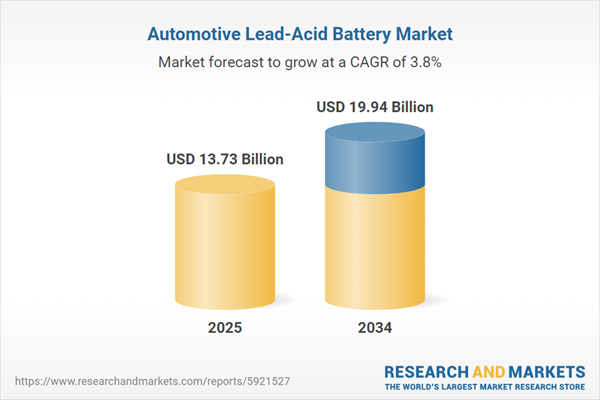Based on the vehicle type, the passenger car segment is expected to dominate the market in 2020, owing to the rising application of automotive lead-acid batteries in passenger cars. On the basis of product, the SLI battery accounted for the largest market share in 2020 and is anticipated to retain its dominance over the forecast period. Based on the types, the flooded batteries held the majority of the market share in 2020, followed by enhanced flooded batteries and VRLA batteries. Based on the customer segment, the market has been bifurcated into OEM and replacement. OEM currently represents the leading segment. Geographically, the Asia-Pacific region held the major market share in 2020, followed by North America and Europe.
Market Segmentation
A lead-acid battery is made up of lead and lead oxide plates, immersed in a sulphuric acid solution. It transforms chemical energy into electrical power during the discharge cycle. These batteries have a significant use in automobiles for starting, lighting, and ignition (SLI) purposes. It also supplies voltage to vehicle accessories such as air conditioners, radio, music players, wipers, and charging plugs. Furthermore, the growing demand for pollution-free electric vehicles along with technological advancements is estimated to fuel the demand for lead-acid battery over the upcoming years. The automotive industry has estimated that lead-acid batteries are the only technology capable of providing high power, which is essential to start conventional combustion (ICE) engines.The industry can be broadly categorised on the basis of its vehicle type segment into:
- Passenger Cars
- Commercial Vehicles
- Two-Wheelers
- HEV Cars
The major product types in the global automotive lead-acid battery market are:
- SLI Batteries
- Micro Hybrid Batteries
The industry can be segmented based on its type into:
- Flooded Batteries
- Enhanced Flooded Batteries
- VRLA Batteries
The industry can be broadly segregated on the basis of its customer segment into:
- OEM
- Replacement
The industry can be segmented based on its region into:
- North America
- Europe
- Asia-Pacific
- Latin America
- Middle East and Africa
Market Analysis
The growing sales of automobile are the prime factor driving the market growth, particularly in emerging economies such as the Asia-Pacific and the Middle East. These batteries are cost-effective and are easy to recharge; thus, they are preferred by automotive manufacturers for use in start-stop systems. In addition, the surging demand for electric vehicles and e-bikes, for improving living standards and inflating income levels, are the other major factors impacting the sales of lead-acid batteries. Moreover, increasing research and development activities by the automobile industry to enhance the efficiency of the battery is further anticipated to foster the market growth over the forecast period. Also, they possess many advantages such as high current delivery, tolerance to overcharging, resistance to corrosion and abrasion, and low internal impedance, which makes them appropriate to be used in electric vehicles, further propelling the growth of the market.Competitive Landscape
The report presents a detailed analysis of the following key players in the global automotive lead-acid battery market, looking into their capacity, market shares, and latest developments like capacity expansions, plant turnarounds, and mergers and acquisitions:- Exide Technologies Inc.
- GS Yuasa International Ltd
- Panasonic Corporation
- Leoch International Technology Limited Inc
- Others
Table of Contents
Companies Mentioned
The key companies featured in this Automotive Lead-Acid Battery market report include:- Exide Technologies Inc.
- GS Yuasa International Ltd
- Panasonic Corporation
- Leoch International Technology Limited Inc
Table Information
| Report Attribute | Details |
|---|---|
| No. of Pages | 159 |
| Published | August 2025 |
| Forecast Period | 2025 - 2034 |
| Estimated Market Value ( USD | $ 13.73 Billion |
| Forecasted Market Value ( USD | $ 19.94 Billion |
| Compound Annual Growth Rate | 3.8% |
| Regions Covered | Global |
| No. of Companies Mentioned | 5 |









